Law Society Journal






Every day, the legal landscape of the world is changing. Law is, after all, dynamic: an evolving mechanism rather than a fixed monolith of statue and precedent, the product of an ongoing social conversation. This conversation can achieve incredible things: our entire modern system of rights and freedoms exists because people fought to have their voices heard time and again. But the inverse is also true: when these voices aren’t heard, the law can become a weapon of suppression. As the UK stands poised to reject the statutes of the ECHR, such a situation seems increasingly likely, and it’s easy to feel powerless in the face of a system that appears unchangeable.
However, we are not powerless: though the law can be weaponized, it can also be utilised to take a stand against this erosion of rights, a tool to make ourselves heard. The best way by far to make ourselves heard, to be able to use the law to enact positive change, is to understand it.
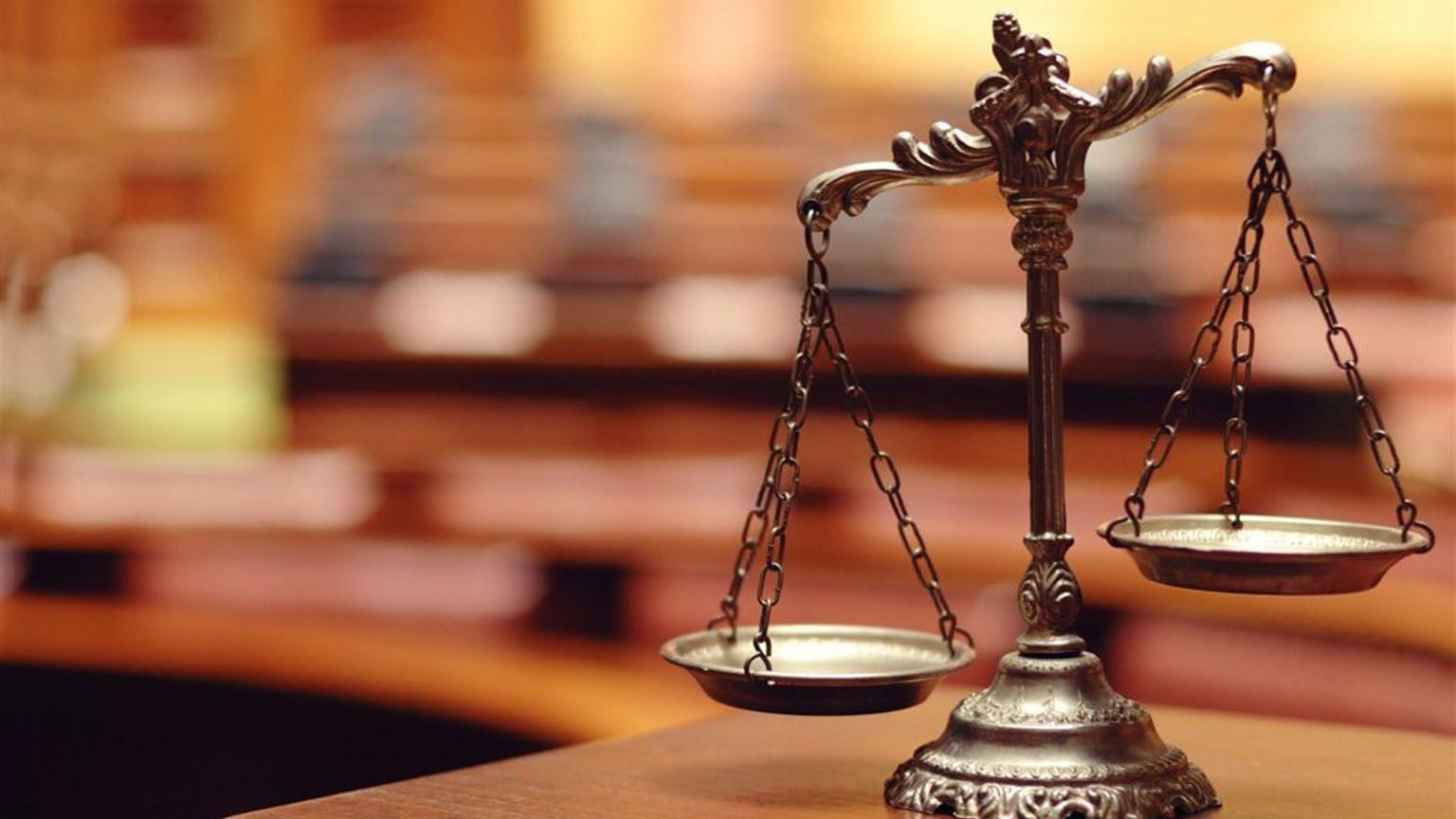
Which is why I’m so excited to present the St Olave’s Law Journal 2023, encompassing the interests, passions, and voices of enterprising young lawyers from across the school. By taking an interest in the field, we hope to encourage all of you to find your voice in the conversation, to make yourselves heard, and join the fight to change society for the better.
By Joe Davies, Editor
 by Joe Davies
by Joe Davies
Those of us familiar with the courtroom drama may think of judges as a sort of trial referee: a stern yet sympathetic authority figure whose sole purpose it is to say ‘hmm…I’ll allow it this once’ with an eyebrow arched in curiosity as the prosecution commits some of the most heinous violations of legal protocol you’ve ever seen (they really did Get Away With Murder in that show). While to some extent this is true (a story all in itself, believe me), judges serve a much more significant, if often overlooked, purpose in the trial process.
The prosecution presses particular charges against the defendant on behalf of the crown; the jury decides whether or not the defendant is guilty of the crime; and if they’re found guilty, the judge decides the sentence the defendant has to serve. This power, however, is pretty contentious. In a system founded on checks and balances, sharing power between the people and the state, establishing a paragon of justice, it’s a little odd that once they’re found guilty, one guy has the power to decide whether they go to jail for 6 months or 6 years. Since judges have unilateral power, within the bounds of statute/precedent limitations, to decide the severity of a sentence – including, in several jurisdictions across the world, the death sentence – the question then becomes: can judges be trusted not to be subjective or arbitrary when passing judgement? And if not, what can be done to overcome this?
This idea is often raised in the context of the question, ‘does it matter what a judge had for lunch?’: the idea being, if the judge had a particularly satisfying lunch, would they be more inclined to give a more lenient sentence and vice versa? Where sentences aren’t mandatory and are instead left to judicial discretion, there is a natural risk that the personal biases of a judge, however slight, may affect their sentencing decisions. But is this a valid concern?
There is a strong argument to suggest that, even with the power a judge has over sentencing, the feelings of the individual ultimately have very little bearing on the eventual sentence due to the system of legal safeguards that constrain this ‘unilateral’ power. The first of these is the sentencing limits: most crimes will carry a minimum and/or maximum sentence, which provides a range in which the judge can operate at their discretion. This, in theory, prevents two convicts from receiving wildly different sentences for the same crime, with judges considering circumstantial factors to make adjustments where necessary. Therefore, even if a judge’s impartiality may be compromised by personal factors, the consequences of this should not be excessively significant because the outcome is essentially the same. Furthermore, judges have the option to
remove themselves from the trial if they recognise their impartiality may be compromised. This process, known as judicial recusal, exists to check the legal power of a judge’s opinion by giving them the option to withdraw from a case they may compromise, and, since judges are renowned for their legal wherewithal, they will more often than not opt to recuse if they suspect they may unfairly influence sentencing. Although some may argue that, since recusal is a personal choice, there is no guarantee that a judge will go
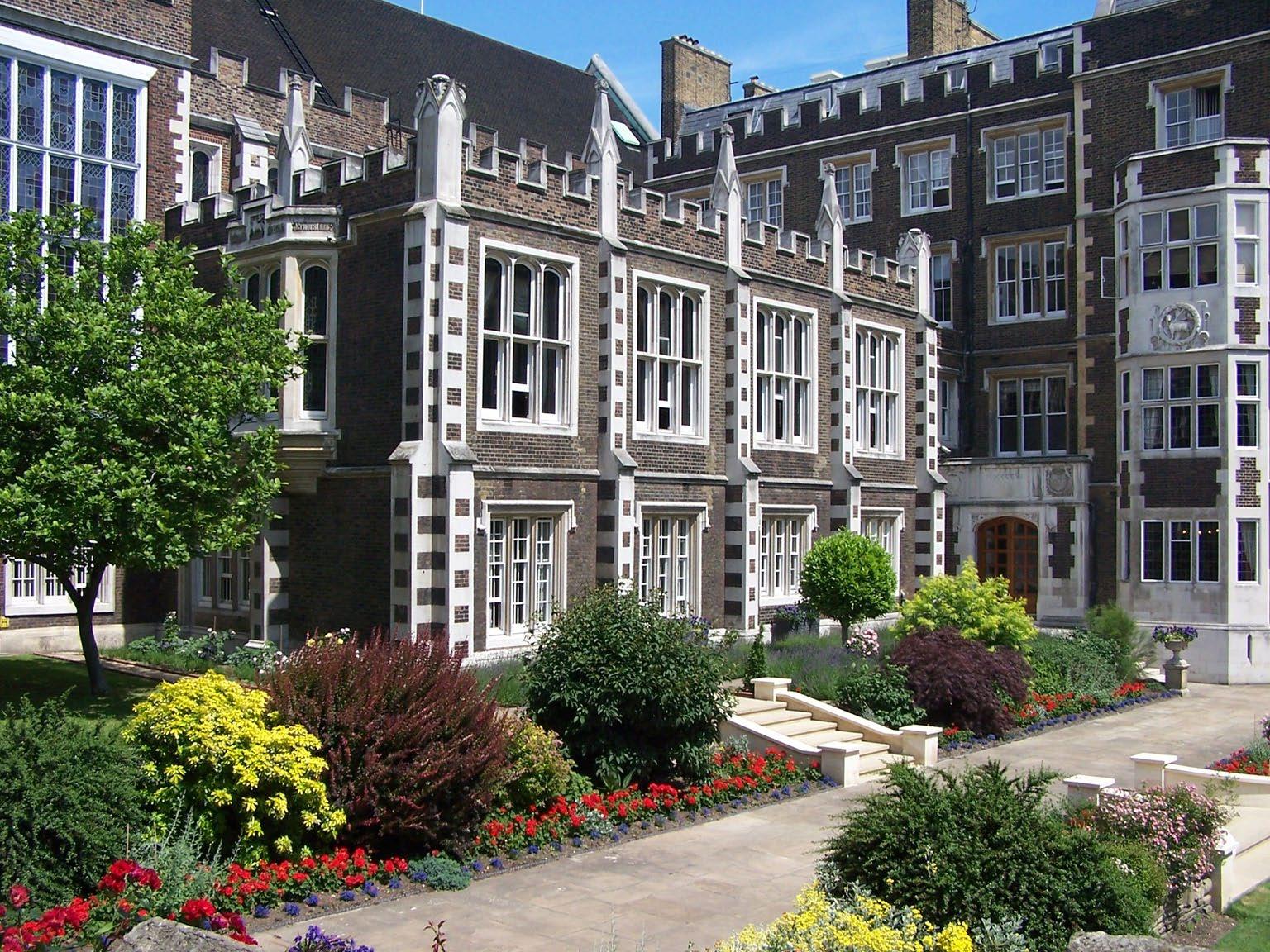
through with it, lawyers have the ability to request recusal if they believe a judge is not in a position to make an unbiased ruling. If this is found to be correct, the judge is now expected to recuse themselves, and failing that, the lawyer can file a higher court appeal for judicial disqualification which takes the matter out of the judge’s hands. On the subject of appeal, a judge’s ruling is not necessarily final. If the defense believes a conviction or sentence to be unjust, they have the option to appeal the case through to the higher courts. Ultimately, unless the defendant has some astonishingly bad luck, they will at some point receive an uncompromised second opinion that does its due diligence in trial, maintaining the objectivity required for our system to function. The legal system recognizes the authority of the judge in sentencing, but it is also aware that judges are only human too. It is not oblivious to the ramifications of this level of unilateral control if left unchecked, and so the aforementioned safeguards hypothetically prevent this authority from contravening the justice it sets out to protect.
However, regardless of what the legal system ‘sets out’ to achieve, does this system actually work in practice? Can something as simple as a dodgy lunch really compromise the broader integrity of justice? Despite the steps taken to minimize the possibility of unfair trial through non-legal factors, the system is far from perfect. Firstly, the range of minimum to maximum sentences can vary wildly and depend largely on non-empirical value judgements. Looking at shoplifting as an example, where stealing over £200 worth of goods can carry a maximum sentence of seven years in custody, it depends on whether or not the judge believes the defendant to be ‘capable of rehabilitation’ that decides if they experience jail time. The consequences of imprisonment relative to a non-custodial penalty are unjustly disproportionate, with severe and long-term impacts on social, physical and psychological wellbeing, and the difference between one or the other is solely how charitable a judge is feeling on a certain day. This, too, is where the problem lies with existing safeguards: it underestimates how
powerful the most minor of influences can be.
Judicial recusal most commonly applies to severe, and most importantly obvious, conflicts of interest, largely pertaining to personal involvement or ideological biases. These are blatant, quantifiable and easily resolved IN THEORY. In reality, the prejudices of a judge may be much harder to prove, harder still to force recusal, and that still doesn’t account for the possibility of a judge, on average a sixty-year-old upper middle-class man, forming a dislike of someone who wears a crop top or septum piercing to court. Even that may be too generous: with the power judges wield over the legal system, even blatant abuses of the system over serious prejudice often go unpunished.

Judge Les Hayes once sentenced a single mother to 496 days behind bars for failing to pay traffic tickets. The sentence was so stiff it exceeded the jail time Alabama allows for negligent homicide.
As mentioned previously, the ‘essentially negligible’ differences between sentences are not so negligible to the lives they impact – an extra year in jail means little on paper, but everything in practice in terms – so both the random and systemic biases of a judge in determining where they fall on the sentencing spectrum expose defendants to massive, undue risk. This also fails to address the strain on the defendant throughout this process: appeals are not a guarantee, especially when the influencing factor is so insignificant that it is entirely overlooked, and even if one is granted, it takes up valuable time and resources to achieve a ruling that should have been given in the first place. There’s a domino effect at work here, where the smallest factors
can snowball into cataclysmic disasters, and the legal system fails to account for such possibilities.

However, the most dangerous possible consequence of judicial indiscretion is embedded into the very fabric of British law, and could be disastrous if left unaddressed.
The UK, like many anglophonic countries, operates under a common law system. Unlike civil law, where case rulings are largely determined by legislature, common law depends on case precedent: that is, a judge’s ruling has the potential to influence how future cases of similar circumstances will be settled. Herein lies the problem: a questionable decision made by a judge on a certain day in a certain situation goes on to shape how all future cases in that vein will be settled. The power of judges to shape the fabric of the law through their decisions is not a responsibility taken lightly, but this unilateral authority is still dangerously susceptible to human subjectivity, and the more ingrained these rulings become in our legal system, the more difficult they are to extract. When a soggy egg-and-cress sandwich has the capacity to determine that every shoplifter from a lowincome community is sentenced to seven years in prison, no matter how unlikely it may seem, it is a sign that serious initiative needs to be taken to eliminate even the possibility of such an outcome.
The question then becomes, when confronted with the problems of an arbitrary judiciary, what can be done to fix it? The first potential solution, to have a fixed sentence for a crime substantiated by quantifiable factors, e.g. the value of goods stolen, has its merits in that it eliminates the possibility of injustice on a case by case basis. between cases, it seriously undermines fairness within cases. The second potential solution, to have a panel of multiple judges collaborate on a ruling, carries greater promise: the immediate introduction of a second opinion separate from the appeals process would save resources and guarantee a greater element of impartiality. However, this
system would only occupy more immediate resources where they may not be required, and while a collection of different opinions could nullify potential bias, the equal likelihood that two similar opinions collide could only exacerbate the initial problem. A ‘good judge, bad judge’ setup, though seemingly taken from a lost Gilbert and Sullivan musical skit, increases the odds of an impartial ruling, but the defendant facing trial after a canteen catastrophe stands little chance. The significance of the judge in our justice system can be our greatest strength, but it has the potential to be our greatest downfall, and with the system as it is, that human element is impossible to compensate for.
Judges are the foundation of British law. Their expertise, their fair judgement and their uncompromising commitment to the law make them the indispensable glue that binds the system together, ensuring that, no matter the ruling, trials remain free, fair and factual. However, judges are also only human, with human problems and biases. These human problems colliding with the required objectivity of law is a recipe for disaster, with potentially severe and lasting consequences. And yet, without the human element, if we were all exposed to the unfeeling monolith of Law, would we be any better off? Ultimately, judges are arbitrary by nature of their humanity, but how we seek to resolve this without compromising the fundamental humanism of our legal system is a challenge that will take a great deal of examination, understanding and patience to resolve.
Something many of you, as prospective law students, will come to discover as you’re preparing to apply is that law is malleable: although we perceive it as a system that governs society, it is every bit as much governed by society, and the beliefs and attitudes of the people who partake in it. The reason laws change is because people change, and the conversations people have about the nature of law are integral to making that process happen. So this article posits a question for you to consider and compare with others: I’ve provided my perspective to get you started, to be a jumping off point to establish the legal dialogue that forms the basis of our system, as best as possible in print.

can force the hand of legislators into opposing or undoing existing proposals with the knowledge that they are no longer something the population at large will tolerate. However, a protest can just as easily go unnoticed or ignored, or in some cases, provide further ammunition for political repression or brutal suppression: where the Suffragettes succeeded, those in Tiananmen Square did not. So can a force for change so unpredictable be considered truly effective?
When poised with the question, a protest is likely the first option to come to mind, and with good reason: protests are, by design, meant to catch our attention. To some, a protest makes a powerful statement: unlike its more understated counterparts, e.g. a petition or a letter to leadership, it brings an issue into the public conscience and it demands a response, inspiring future legal reform. To others, protesting is at best an inconvenience, at worst an antagonistic or even dangerous force that causes more problems than it endeavours to solve. Yet protests, being outspoken, assertive and accessible, are truly the most effective vehicle of legal change.
Protests work because they are a visible, outspoken expression of the people’s dissatisfaction towards the system: towards policies, towards governments, towards laws. By not just stating, but asserting discontent, a protest
To answer this question, one must consider what makes protesting effective. Firstly, they’re attention grabbing. By making a public display of one’s dissatisfaction with the system, particularly if that involves inconveniencing those in control (protesting outside of Parliament or the Courts for example), it becomes increasingly difficult for said legislators to ignore that dissatisfaction, increasing the chances of passing successful reform. The advantages of protesting beyond this can go even further. The first is accessibility: although many argue, in part correctly, that the convenience of social media has undermined how impactful a protest appears visually as it’s become much easier to assemble large groups on short notice, that doesn’t detract from the fact that anyone has the opportunity to protest. By enabling the general public to participate in active demonstration against unjust laws, a protest is made exponentially more effective as it can garner support from every corner of society. Secondly, societal transgression. When protesting, individuals are disturbing the smooth functioning of society in some form or another, using this disruption to assert and uphold their beliefs. It could therefore be said that the inherently divergent nature of protesting enables people to discuss more societally ‘taboo’ topics: the physical nature of disturbing the status quo encourages similar ideological challenges. Because of this, issues like LGBT rights that people may not otherwise openly discuss are proudly brought into the public conscience, massively increasing the chance that these issues might see reform. This leads into the final idea: long-term influence.

A joint study by Harvard and Stockholm University found that the act of protesting often didn’t influence legal changes: it was instead how the inspiration created by these protests molded the views of those who saw them. Protests often don’t directly lead to legal reform, but rather act as the groundwork for changes in voting patterns, campaign manifestos and political contributions that would motivate the systemic changes required to change laws. As such, this challenges one of the most significant counterpoints to this argument: even if a protest fails in achieving immediate legal change, its impact is not altogether lost. On the contrary, the impact of protests comes not from the immediate consequences, but rather from the long-term nature of reform, making it a highly effective method for changing unjust laws.
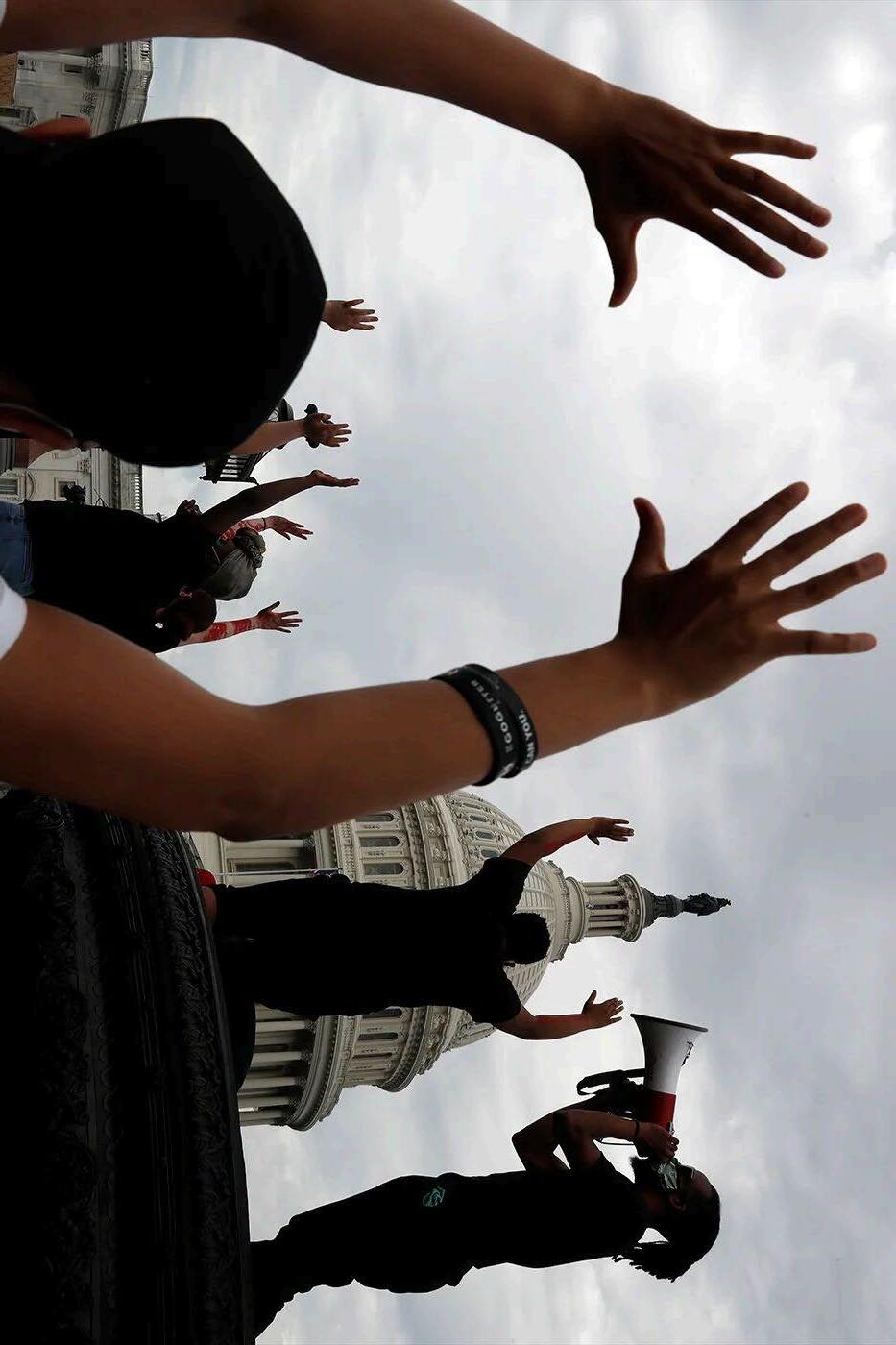
Another important facet of this question is the concept of ‘most effective.’ Considering its alternatives, such as petitioning, writing to or even taking legal action against the government in the form of a judicial review, these methods fall into many of the same pitfalls that protests do. Petitioning, for example, has become the subject of ridicule in today’s society as a byword for ‘slacktivism’. Whilst the internet providing the opportunity to raise awareness to millions of people almost instantly may sound incredible on paper, the issues of ease and the passive campaigning that follows from it have resulted in petitions with millions of signatures being ignored out of hand. In essence, the problem that weakened protesting has outright destroyed more passive methods of legal reform. What’s more, the visual impact of a protest is far more effective at inspiring change than a petition: whilst it’s easy to ignore a million faceless digital signatures, it’s much harder to ignore a million people marching down the Victoria Embankment holding placards. This only leaves direct systemic reform, which raises another important issue: accessibility. Assuming you aren’t a lawyer, which comes with its own costs (about £40,000 and your mortal soul), filing a judicial review will cost you upwards of £25,000 in legal fees and take potentially up to two years to receive a verdict. In 2018, 95% of submitted requests for judicial review were dismissed, and of the 5% that succeeded, only 40% were won by the plaintiff. Unlike protests, the majority of the general public can’t access reform directly through the courts because the general public don’t have two years and tens of thousands of pounds to spend on a case they may well not win, which is if it even makes its way to court.
While it’s easy to perceive protesting as less effective than its alternatives as, when it fails, it tends to fail very visibly, it’s important to remember that said alternatives are often just as temperamental in their success. When challenging the status quo, one is likely to meet resistance, and this resistance is exceptionally difficult to overcome. The only difference is, when others fail, they simply melt away into obscurity: can that truly be considered more effective than a protest?
Overall, protests have the necessary significance to push legal change in a way no other method can. By forcing issues of contention into the public conscience that we may otherwise shy away from, by asserting to legislators that unjust laws will not be tolerated by the public, and by influencing the way people think about issues long-term that can reinvigorate future reform, protests provide the population at large with the tools they need to make meaningful change. Protesting has, in large part, been judged by its unfortunately public failures, but in every place and every time, it’s seen more than its fair share of victories. Even if one protest doesn’t succeed, another may well do in its place in time: it took twenty-nine years for women’s suffrage in the UK to not only succeed, but be regarded as one of the most influential political movements in history. Fundamentally, actions speak louder than words, and when it comes to legal action, a protest is no different.
But what’s your perspective? Check our post on LawSoc’s Instagram to join the discussion!
‘’The reason laws change is because people change, and the conversations people have about the nature of law are integral to bridging the gap between the two’’
Artificial intelligence (AI) is transforming industries across the board, and the legal profession is no exception. AI is already being used to streamline legal processes and improve efficiency, but the potential for AI in the law goes far beyond this. In this article, we will explore the role of AI in law and the potential for AI to revolutionize the legal profession.
One of the main applications of AI in the legal profession currently is in document review. AIpowered software can scan legal documents and flag important information for lawyers, making the review process faster and more accurate. This can save lawyers countless hours of time and improve the accuracy of legal work. Additionally, AI-powered chatbots are being used to assist clients with legal queries, making legal services more accessible and affordable.

However, the potential for AI in law goes far beyond these relatively simple applications. In the future, AI has the potential to revolutionize the way lawyers work, making legal services more efficient, accessible, and affordable for everyone.

One area where AI could have a significant impact is in the prediction of legal outcomes. By analyzing large volumes of data, AI algorithms can predict the likely outcome of legal cases with a high degree of accuracy. This could help lawyers to better advise their clients and improve the efficiency of the legal system by helping to settle cases out of court.
AI could also help to democratize the legal system by making legal services more accessible to people who cannot afford traditional legal services. By providing AI-powered legal advice, people could receive legal guidance without the need for expensive lawyers. This could help to level the playing field for people who might otherwise be unable to afford legal representation.
In addition, AI has the potential to help lawyers to work more efficiently. By automating routine legal tasks such as contract drafting and document review, AI could save lawyers countless hours of
time. This would free them up to focus on more complex legal work, improving the quality of legal services and potentially reducing the cost of legal services.
One potential concern about the use of AI in law is the risk of bias. AI algorithms are only as unbiased as the data they are trained on, and there is a risk that AI could perpetuate existing biases in the legal system. For example, if an AI algorithm is trained on data that is biased against a particular group, it may perpetuate that bias in its recommendations.
To address this concern, it is important to ensure that AI algorithms are trained on diverse data sets and that their outputs are carefully monitored for bias. Additionally, it is important to ensure that AI is not used as a substitute for human judgment in legal decision-making. Rather, AI should be used to support and enhance human decision-making, not replace it.

Another concern about the use of AI in law is the risk of job loss. If AI is used to automate routine legal tasks, there is a risk that some legal jobs could become obsolete. However, it is important to remember that AI is not a substitute for human judgment and that there will always be a need for human lawyers to provide legal advice and guidance. Additionally, the use of AI could create new job opportunities in the legal profession, such as AI trainers and data analysts.
In conclusion, the potential for AI in law is vast. AI has the potential to improve the efficiency and accessibility of legal services, democratize the legal system, and enhance the quality of legal work. However, it is important to ensure that AI is used responsibly and that its outputs are carefully monitored for bias. Additionally, it is important to remember that AI is not a substitute for human judgment and that there will always be a need for human lawyers in the legal profession. As AI continues to develop, it is likely that its role in the legal profession will continue to grow, and it will be exciting to see how AI transforms the legal profession in the years to come.
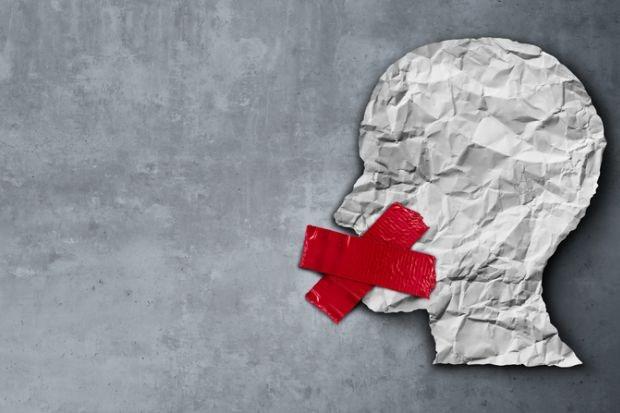 By Amoré Adams
By Amoré Adams
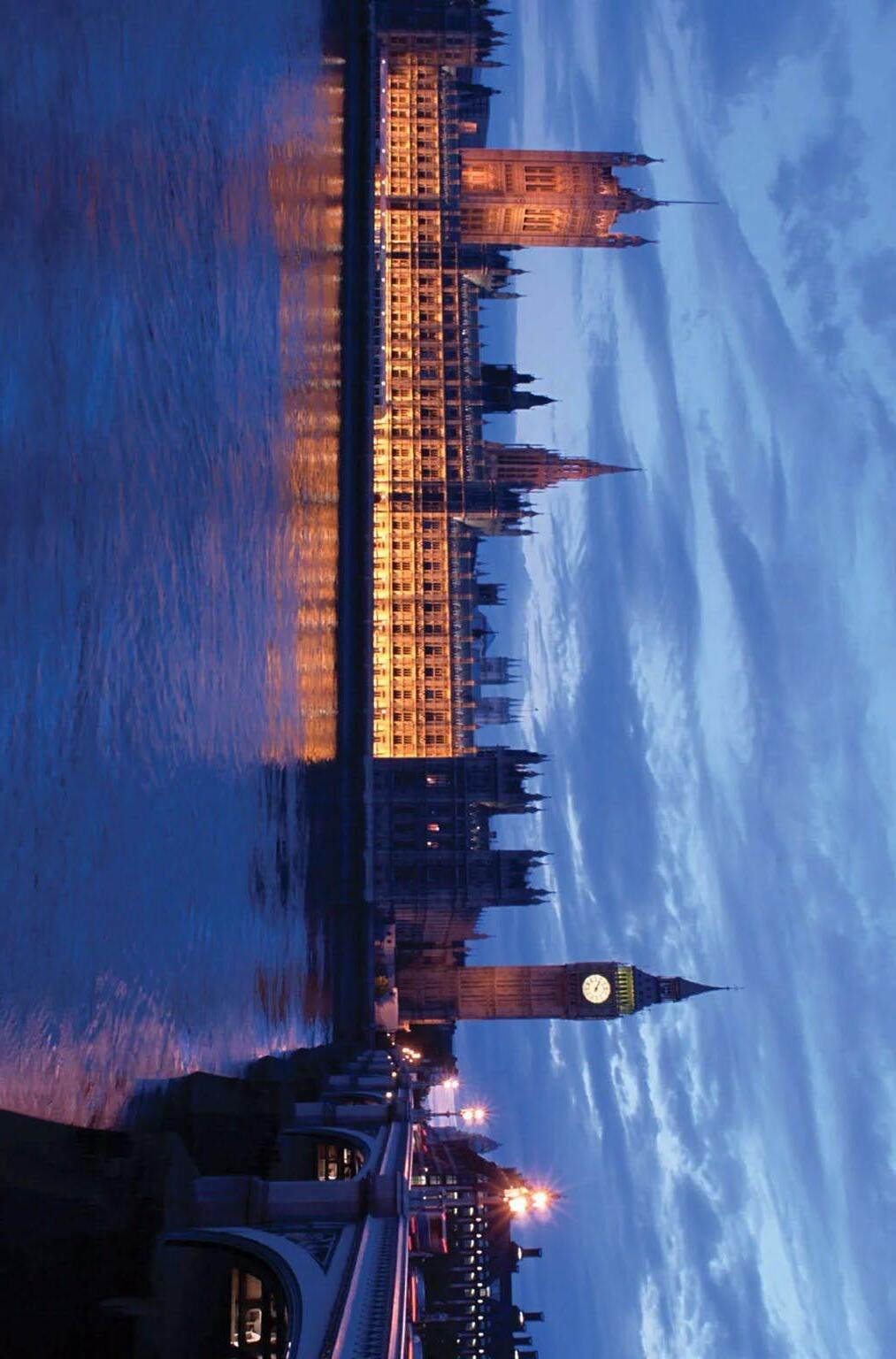
Article 10 of the Human Rights Act 1998 states that freedom of expression is the “freedom to hold opinions and to receive and impart information and ideas without interference by public authority and regardless of frontiers.” This right is at the heart of democratic society, enabling people to exhibit their identities, values and opinions without being persecuted for doing so. Therefore, this essay proposes that the only limits to this principle should be in cases where it conflicts with other rights enshrined in the Human Rights Act. This approach is explored in relation to current limits to freedom of expression, hateful expression and social media.
"The right to swing my fist ends where the other man's nose begins." This maxim, attributed to Oliver Wendell Holmes, a former Associate Justice of the Supreme Court of the United States, precisely encapsulates where the limits to freedom of expression should be placed. Namely, prohibiting this right should only be limited to contexts where it violates the human rights of another, especially pertaining to the inalienable, absolute rights of the Human Rights Act 1998 - Article 2, 3, 4 and 7 in the UK. Therefore, freedom of
expression should take priority over general laws, making these laws void in instances where they violate the fundamental liberties all are entitled to. As freedom of expression is a qualified right, under current UK law there are numerous exceptions to it that result in this freedom being wrongfully diminished. However, many would defend the existence of these conditions, arguing that they often protect other human rights like the restriction on freedom of expression when it is necessary to 'maintain the authority and impartiality of judges' protects the right to a fair trial. Nonetheless, other exceptions to the right such as to 'protect health or morals' does not directly defend any of the human rights, rendering it unjust. Meanwhile, the legitimacy of some of the exceptions to freedom of expression depends on the situation, such as reducing this right to 'protect national security, territorial integrity (the borders of the state) or public safety'. In some cases this clause would uphold the right to life if the risk to national security by expression were to threaten lives, or uphold the right to privacy if the violation of national security were to disclose citizens' personal information. However, if this exception to freedom of expression is not carefully evaluated according to the situation with consideration to which human rights are genuinely threatened, the right to freedom of expression can be unfairly restricted, such as in the case of R v Paul Chambers, notoriously known as the Twitter Joke Trial. After Paul Chambers' flight was cancelled he jokingly tweeted 'C**p! Robin Hood airport is closed. You've got a week and a bit to get your s**t together otherwise I'm blowing the airport sky high!!'
What
Promptly after this, his house was raided by anti-terror police and he was charged under the Communications Act 2003 after the Magistrate's Court ruled his tweet was of a "menacing nature", despite his adamance that he was joking. Following this he lost two jobs but after appealing the High Court rightfully reversed the original verdict, emphasising that his right to freedom of expression must be upheld. Overall, while some of the current limits to the qualified right to freedom of expression are valid (in cases where they violate other human rights), other limits undermine the supposed supremacy of human rights. Therefore, the only appropriate limit to the right to freedom of expression should be when it violates another human right.
However, many would challenge the proposition to only restrict freedom of expression when it violates another human right on the assumption that it would be impossible to determine whether freedom of expression or the conflicting human right should take priority. This challenge can be overcome by drawing on the case of Campbell v MGN, where it was determined that Naomi Campbell’s right to privacy superseded the Daily Mirror's freedom of expression after they published pictures of her attending a Narcotics Anonymous meeting. For the first time the concept of hierarchically ranking types of speech manifested, introduced by judge Baroness Hale who established that “there are undoubtedly different types of speech, some of which are more deserving of protection in a democratic society than others. 'Political speech is worthy of the strongest protection, while intellectual, educational, and artistic speech are also important.” However, she concluded that this case was solely concerned with "celebrity-exploiting tabloid newspaper” and as it did not come under any of the categories worth legitimately defending, Campbell’s right to privacy trumped freedom of expression. Therefore, for issues where freedom of expression conflicts with other rights enshrined in the Human Rights Act, the order on the hierarchy should first be considered when deciding which right to protect. However, instances where there is a conflict between a form of expression falling under the apex of the
hierarchy (political speech) and another right, the matter would be best resolved by a judge of the highest court or when available, judicial precedent.

Another argument that some may raise against protecting freedom of expression above regular laws is that human rights were originally derived from the European Convention of Human Rights and therefore compulsory for all EU member states to adopt. However, as Britain has left the EU some would insist that national legislation such as the Equality and Communication Acts which were passed democratically (even though through indirect democracy) should be favoured over the right to freedom of expression which was imposed on the country by foreign legislation when we were a member state. However, while human rights originated from the European Convention of Human Rights, they are enshrined in UK legislation by the 1998 Human Rights Act, regardless of whether or not the country is in the EU. Furthermore, freedom of expression is a principle under the Universal Declaration of Human Rights (although advisory as opposed to legally binding). Therefore, the right to freedom of expression as a fundamental entitlement of all should not be limited by regular laws.
While many insist that freedom of expression should be curtailed in instances where it enables people to propel offensive or discriminatory ideologies through hate speech or alte rnative mediums, without the freedom to offend freedom of speech becomes meaningless. Few would contest ordinary, benign expression so what is the point of the right if it does not also encompass the most contentious type of expression? However, many would argue that even up against regular laws such as those of the Equality Act 2010 the right should be quashed.
"The right to swing my fist ends where the other man's nose begins."
While hate speech and discrimination are undoubtedly immoral, charging people for this form of expression does not resolve the underlying problem. While making it a cause for prosecution may deter people from expressing hateful views aloud, this is actually counterproductive to creating a more progressive society as it is only through social discourse where people can express their views that others are given the opportunity to challenge and potentially reform them. Meanwhile, prosecuting people for hateful expression would do nothing to actually aid them in disregarding such ideologies, but could instead intensify these harmful beliefs due to the resentment felt at being legally reprimanded for them. Furthermore, the fact that the Equality Act only protects individuals from hateful expression in limited places such as the workplace, using public services or when purchasing from businesses means that it is fundamentally flawed. It gives the underlying message that as opposed to hateful expression being intrinsically wrong it is simply unprofessional, as individuals are only prohibited from being discriminatory or hateful when at work, not in the private sphere. Furthermore, the restriction of individuals’ rights when they are working raises an ethical challenge, virtually implying that their entitlements as human beings are only revived upon the termination of their shift. Essentially, freedom of expression should not be limited by hate speech as while morality and law are interlinked, they are ultimately separate entities. Therefore, while hateful expression is immoral and should still be subject to social repercussions, it is not the law's duty to regulate morality. In the digital age the barriers of communication present in the physical world are eradicated through social media, increasing the opportunities for harmful expression. Thus, many are in support of the recent Online Safety Bill proposed by Parliament. However, while some of the offences under this bill help to uphold other human rights such as banning media displaying self harm (which could ultimately

threaten the right to life), other offences are more controversial, such as knowingly distributing seriously harmful misinformation. However, the right to freedom of expression should only be limited when misinforming social media content undermines a human right, like the right to life. For example, the spreading misinformation about COVID-19 in incidents where it could genuinely lead to people putting their lives at risk, such as videos circulating social media platforms at the beginning of the pandemic claiming the disease was a myth. Overall, limits to freedom of expression online should conform to the limits to this right proposed in the physical world: in cases when another human right is violated. Therefore, this should be reflected in the offences under the Online Safety Bill.
In conclusion, limits on freedom of expression should allow individuals as much autonomy as possible, considering that autonomy encapsulates the primary purpose of this freedom. Therefore, the state should only encroach on this right in both the physical and online realms in instances when another human right is violated. While this proposal would not prosecute people for expression that is considered morally wrong, society must rather focus on combatting these ideas at the source through education and challenging it when it does arise. In essence, in the words of Benjamin Franklin 'there is no such thing as public liberty without freedom of speech'.
Any suggestion of, in some way, reducing the income of the top 10%, 5%, or even 1% of society has always been followed by an identical response: loud outrage from the affected minority contrasted by support from the vast majority, labelled by the capitalist system as "inferior" or "second-class" by virtue of their position and income. Despite being defeated by the powerful voices of the elite, the same question has returned repeatedly both in companies and in government, but we should not relent and believe the flowery illusions of the claimed fairness and societal benefit of uncapped executive salaries.
Some, but namely and predominantly those in receipt of these inflated salaries, would like the belief that executive salaries are not in fact inflated to become the popular view. They confidently state that those are the salaries that they deserve, often after years of academic and professional experience, culminating in the position of ultimate responsibility in a company. "The dedication, the determination, the stress that we are under clearly entitles us to this, if not to more," an executive would proclaim. The consequence of needing extensive experience is further emphasised through the fundamental economic principle of supply and demand, leaving no legitimate reasoning for a cap.
Nevertheless, an issue with the arguments made against a salary cap arises before the argument itself is even considered, with its provenance being sufficiently objectionable to exclude it entirely. It would be naive to expect those directly affected by a future cap to tackle the issue objectively, from the perspective of societal rather than individual benefit. Crucially, it must be this societal benefit, which drives decision-making behind a price cap, and the benefits the country could reap from it are plentiful. There are two price caps on salaries which could be introduced: a true or de-facto cap,
with neither being notably less beneficial than the other. A true cap would instruct a company on a limit that executives, as defined by an Act of Parliament, could be legally paid, including bonuses, each year. Ideally, the Act would also prescribe that this leftover cash would then be redistributed to lower-salaried employees, who would inevitably have a greater marginal propensity to consume than the executives, improving their individual lives and further stimulating economic growth. A de-facto cap would result in a tax tailored to executives, capping their salaries at a set level, supplementing the funds available to the government for necessary infrastructure such as the suffocating NHS.

However, while the principle of capping executive salaries to benefit all of society is vital, it must be stressed that it should only be instituted if the government equally prescribes where these funds should be used. Is it worth capping the salaries of executives if companies will just use the same funds to expand their fleet of company vehicles or supply the fuel for the corporate jet? Without this, an introduction of a salary cap will be a meaningless statement, which changes little except for the Prime Minister and the Chancellor of the Exchequer being able to proudly give themselves a "pat on the back" at the next question time in Parliament.
Therefore, a cap on executive salaries should without question be instituted; the only people who would oppose it would be the executives themselves and the politicians in Westminster, who require their votes, but more importantly donations, to maintain their positions. The question of whether there should be a salary cap is not really the question that requires an answer in a cost of living crisis affecting millions. It is the question of how that will determine whether we should have done it in the first place.
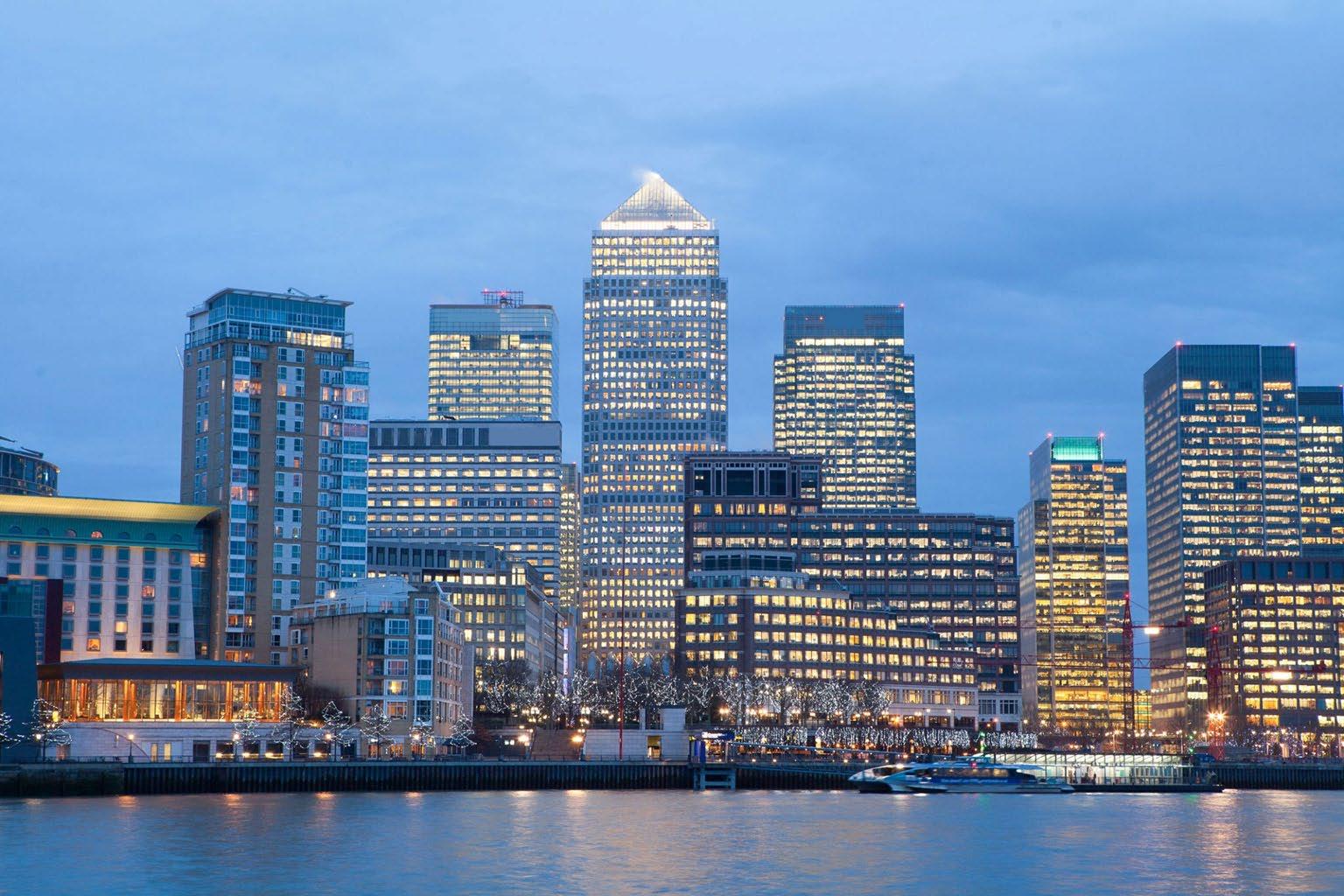
It’s that time of year again! Just kidding, that time of year for university applications never ends, a sentiment which is especially true for a law student. With so much going on and so much to do, it can be difficult to work out where, when or how to begin! So, the St Olave’s Law Society has compiled some resources to make that process that little bit easier.
Probably the first roadblock many law students encounter in the application process is deciding whether they want to actually study law. Law is a career many people come quite late to, and with the availability of postgraduate conversion courses, a lot of people prefer to study a different subject they find more engaging at an undergraduate level. But is this the right move?
Fundamentally, it’s not too important in terms of career progression: you’ll do the same qualifying exams as law undergrads (the SQE), meaning you’ll finish the course with the same level of legal knowledge, and most firms hire trainees on a roughly 50/50 basis: 50% law undergraduates, 50% postgraduate conversions. That same proportion applies to our presidency team: only two of us are doing undergraduate law next year.
However, since I’m the editor and am subsequently the incontrovertible god of this journalistic realm, I’m going to let my biases through and say studying undergraduate law has a number of significant advantages if you actually want to do law.
1) A law degree, where you’re specifically learning about the law from legal professionals alongside people who care about the law, is the best learning environment in which to explore and develop your interests.
2) Law degrees usually give you a greater selection and variety of modules to study that are more likely to cater to your interests, while conversion courses stick to a fairly regimented 7 or 8 to teach you the basics.
3) While law is an intense degree, consider that, for undergrads and converted postgrads to have the same level of legal knowledge after four years, they will both have to do roughly the same amount of work regardless. While an undergrad will do two or three modules a year for three years, postgraduates must therefore do seven in one year. Take that as you will.
4) Even if you decide against law, the LLB is an extremely versatile degree, giving you a plethora of transferable skills that could take you into a variety of different industries. If you choose a degree planning to do a law conversion and end up deciding against it, you might be left with fewer options.
Overall, our advice would be ‘if you know you want to work in law, choose law.’ But if you do choose law, you should be aware of…

If you want to study undergraduate law at any of these 12 universities:
University of Bristol
University of Cambridge
Durham University
University of Glasgow
King’s College, London (KCL)
London School of Economics and Political Science (LSE)
University of Nottingham
University of Oxford
University College London (UCL)
SOAS University of London
Singapore University of Social Sciences (SUSS), Singapore
IE School of Law, Spain
You’ll be required to sit the LNAT, a 2hr 15 minute aptitude test split into two sections designed to test your reasoning and critical thinking.
The LNAT can be extremely daunting, but we have a few things to bear in mind.
In the first section, you’ll be asked a series of multiple-choice questions on 12 different extracts covering a variety of subjects. So how can you prepare?
1. All the information you need is in the extract. If you have any knowledge on the subject in question, forget it. The questions usually aren’t talking about what is being said, but how it’s being said.
2. Practice, practice, practice. The best way to actually prepare for the LNAT is just do a bunch of them. Websites like Arbitio offer excellent testing resources for a small fee (but you can find promo codes online) as a place to get started – Arbitio is far harder than the actual exam, so don’t be put off if you aren’t scoring super high. By repeating tests, you can identify patterns in what the questions are actually asking. For instance, it took me about twelve past papers to work out the difference between an argument and a conclusion (the former is persuasive and often cites evidence to support itself). Since you can’t revise the content, this is the best way to study the test itself.
3. Timing: you get about two minutes per question when removing time to read the extracts, so make sure you’re staying on top of things. If a question won’t come to you, keep going and come back to it later.

4. Clarity: some questions might seem like the don’t have any answers: others might have two or even three. In this case, don’t focus on the answer itself. Think about which answer it couldn’t be, which answer is too extreme or doesn’t go far enough. Like we said, sometimes it isn’t what is being asked, but how.
5. Expectations: for the perfectionists among you, LNAT will not be pleasant. For a test out of 42, a 25 will place you quite comfortably for most Russell groups, and for the universities that particularly value Section A (LSE, KCL, UCL), a 28 or 29 will stand you in very good stead. But even then, this score is NOT the be all and end all. Some people get <10 on the MCQs and land Oxbridge places, others get 38 and don’t. It’s just one part of your application: don’t fret!
The fun part! You’ll be given a choice of three essays usually arguing about current affairs or a particular philosophy. Anything from decriminalising drug use to banning designer babies. If you’re aiming for Oxbridge, this is the part of the test that really matters (i.e. the only part they really care about).
There’s not much you can do to prepare for the questions beyond keeping up to date with newspapers and doing past papers: if you’re doing law I assume you’re doing at least one essay subject, and believe me, these questions are way more fun and way less taxing than a history source. There are, however, some key things to be aware of. Most of which are centred around rejecting the established school orthodoxy on essay writing.
1. Pick a side of the argument and argue it relentlessly. No both-sidesisms, no sitting on the fence: only mention the other side of the argument to eviscerate it with Facts & Logic™. This essay is testing your ability to present reasoned, compelling, interesting arguments, not your capacity for compromise.
2. Think outside the box. There’s nothing wrong with going for the most obvious point if you can’t think of anything else, but if the opportunity presents itself, don’t be afraid to stand out. A good place to start is defining the terms of the question in the text and deconstructing them: what are the implications of a ban on something? How is it enforced? Does that ban contravene a fundamental right? Look for every angle before you begin.
3. DO. NOT. GET. CARRIED. AWAY. These essays should be about as long as a personal statement (~600 words), about 75 words each for an introduction and conclusion, 150 words per paragraph, two or three points. 40 minutes is not a lot of time, and you can’t bank extra time from the MCQs, so don’t let it run away from you.
Registration for the LNAT opens on August 1st, and you can book a test from September 1st. Different unis have different deadlines, but to keep all your options open, it’s best to book before October 16th Book FAST because later slots get eaten up right away. Best of luck!
As it stands you’re probably already prepping the first draft of your PS when this goes out, so this isn’t a super long section: just some tips on reading lists.

While it is tempting to reference a hundred different legal texts, bear in mind you only have about 650 words, and presumably you have other stuff to talk about. I referenced three books in my personal statement and really wouldn’t recommend more than five maximum: if you read others, that’s fantastic and you can mention that in the interview if it’s relevant, but for the PS, just focus on your most insightful thoughts on a handful of books.
Also representing my inner procrastinator, reading takes an ungodly amount of time. I only fully finished reading all of my books the day before my interview, and I repeat, I only cited three books. Now that’s bad bad, I understand that, but it’s my truth and I’m fairly certain it’s the truth for a lot of you. You will be VERY BUSY this Summer, don’t bite off more than you can chew.
Also, write essays. Enter competitions. Show practical interest alongside the literary theory. It doesn’t matter if you win any, it just matters that you enter, and the more you enter, the likelier you are to win. Bonus points if those essays tie into your reading.
Finally, tell a story. Your personal statement is a story about you, what kind of student you’ll be, how your interests and passions have developed. Link things together, weave little paths of logical reasoning, make it read like that journey so the admissions officer can share your experiences with the law. Plus it gives you a built-in structure for how to write the essay: chronologically.
Letters to a Law Student by Nicholas McBride is a great place to start, but from there, just follow your passion!
Frankly this is a huge decision influenced by a myriad of factors that an article in a law journal should have very little, if any, influence over, but PURELY IN TERMS OF THE CONTENT OF THE LAW COURSE, here are some things to look out for.
1. Don’t pay too much attention to the league tables: pretty much every Russell Group will ask for A*AA for an LLB, so they’ll all be teaching to a similar calibre.
2. Take a look at each university’s course modules. Most unis will have a wide variety of optional courses across second and third year: some, like commercial and IP, are very common, while others, like environmental or jurisprudence, are much rarer. Bear that in mind when considering what part of the law you’re passionate about.
3. Remember, the actual law degree is not the end of this process. If you know you want to work in law, the application process starts in and directly after university:
Applying for vacation schemes with law firms in the Summer of your first and second year to make contacts and gain practical experience.
Applying for training contracts at the end of your second year to gain inroads at applicable firms. The firm you train with will also likely cover the cost of your SQE.
Preparing for the postgraduate SQE (the British version of the bar) usually sat at the end of your first year out of university.
However, if you’re mainly basing your decision to go to university on the study of the subject alone, there are a number of alternative tracks: legal apprenticeships are a route into practical knowledge of the law without the associated mountains of debt. Take your time to consider what works best for you!
5. Good luck!
Applying for university can be a daunting prospect, but it’s also exciting: you’re preparing for the next amazing period in your lives! But no matter how this process goes, if you want to do law, nothing is ever the be all and end all. There are always second chances, there are always other opportunities. If at first you don’t succeed, try, try again! And if you do succeed, we wish you all the luck in the world!
If you have any further questions, message us at the LawSoc Instagram and we’ll field your queries as soon as possible.
Good luck, Class of 2024: you’ve got this!
 By Joe Davies
By Joe Davies
Freedom of expression within higher education has been subject to furious academic, political and legislative debate over the last few years.
Epitomised in Gavin Williamson’s Higher Education Bill proposed in 2021, growing concern around the ability to openly express certain views and opinions on campus has incentivised many to take action to safeguard those freedoms: for instance, enabling guest speakers to lecture without faculty restrictions. While some argue that this is essential in ensuring the continued exchange of ideas that forms the foundation of higher education, others perceive such action as its own form of censorship: an attempt to limit criticism or opposition to harmful, discriminatory or otherwise dangerous beliefs, and indeed use higher education as a platform to enable them to propagate unopposed. Others believe the problem doesn’t exist, serving as a strawman to provide politicians with an excuse to regulate ideas in a space they consider ideologically hostile. Each of these ideas holds merit in some way, which makes it difficult to determine a clear course of action for those tasked with enforcing these policies. However, were I to be in the position of the Head of a University, I feel I would be obliged to regulate the material guest speakers brought onto campus: based on the true meaning of free speech, the self-regulatory failures of debate, the importance of safeguarding and the integrity of academia, it not only should, but must remain within the control of universities to determine what is and is not acceptable.
The most pressing counterargument against this assertion is the importance of free speech. Under Article 10 of the Human Rights Act, which has been a part of English common law since 1998, all individuals are entitled to free expression of their
beliefs without discrimination. The alleged actions of universities in changing courses, removing recommended reading and particularly banning speakers would certainly infringe against this freedom, which would then be in clear violation of the law. However, in England and Wales, freedom of speech is not as irreproachable as it is in countries like the USA. Indeed, there exist a plethora of various exemptions to the rule, for reasons not limited to ‘harassment, incitement, obscenity, and defamation.’ Of course, gross violations of these exceptions are illegal, rendering their position in university lectures moot since they would likely carry greater consequences than a campus ban, but it is still important to note that there exist twenty-six forms of speech legally recognised to be harmful to the public good. This is further backed by the existence of hate speech laws, such as Section 4 of the 1986 Public Order Act, that prevent the use of speech considered ‘threatening, abusive or insulting’ and intended to cause ‘harassment, alarm or distress.’ Considering these facts together, it becomes clear that universities have more of a right than previously expected to regulate what content is allowed on campus in the eyes of the law. There still exists opposition to this notion, however - as previously stated, all these violations are illegal – so the content of a university speaker’s talk must not infringe on the requirements of free speech if they are allowed to operate in society. While this may be true, we can turn to ethics to explore the liminal space between legal and illegal. Even when something is considered legal, the closer it strays to illegality, or at the very least unacceptability, the closer its consequences are to that of the illegal act.
Harmful material being regulated by university administrators falls into this liminal category: although it may be tolerated within the law, it strays so close to infringing on it that it comes to the same ends of ‘harassment, alarm or distress.’ Universities have a duty to protect students, and if speakers are attempting to come on to campus in a ‘technically legal’ capacity, it should be within the administration’s power to control the content of these speeches. Where the negative outcomes of illegal and legal speech are equitable, the latter should be subject to at least regulation, especially in an environment where it could cause undue harm.
However, some say that intervention of any kind undermines the very premise of higher education: it is up to students to debate these ideas and see which ones stand the test of argument. Many proponents of absolute freedom argue that good and bad ideas in this sort of intellectual forum are self-selecting: if an idea cannot be defended in debate, it is naturally culled into irrelevance without need for administrative interference. This seems logical on the surface but delving a little deeper reveals a darker side to this line of reasoning. Examining recent political trends, a number of extremist fringe beliefs have accrued popularity and credibility by focussing specifically on the exploitation of debating, with proponents of radical beliefs developing rhetorical skills to assert ideological relevance. Debating holds an immense amount of academic weight, a notion perfectly expressed in the aforementioned ‘natural selection’ of beliefs through its medium, but it is important to note that a bad idea can be as equally welldebated as a good one: the value is not in what is said, but in how it is said. This notion, however, is not commonly expressed: winning a debate reflects positively not just on the orator, but on their material. So by training in debate, extremists can utilise this false equivalence to promote their ideals above the status quo, with higher education being a particularly favourite arena for these debates due to the typical imbalance in skill between
participants. The idea that a debate between an external speaker and a university student could be held on equal footing is absurd: most students have very little experience in public debate, particularly if their field is nonoratory, whereas speakers, by definition, have trained to be exceptional, or at the very least persuasive, orators. This is the foundation of credibility for commentators like Ben Shapiro, who rely on debating with less experienced speakers to promote their irrefutably harmful ideologies: Shapiro is a proponent of climate change denial, conversion therapy and lax gun control, and he depends on ‘defeating’ university students in debate to lend any credence to his beliefs, even where a more experienced orator would be able to pick them apart. To put the onus on students to unilaterally dismantle harmful ideas, particularly against opponents who have been trained to utilise rhetoric over reason, is unfair. As these ideas spread uncontested, they marginalise and inevitably silence opposition, the very problem that proponents of absolutism sought to avoid. As such, it would be necessary for more experienced individuals to regulate external speakers to prevent such an outcome, as it can be difficult to recognise the separation between convincing rhetoric and legitimate substance.
Furthermore, as previously mentioned, universities should not be wholly perceived as gladiatorial arenas for ideology. Universities, as implied by the term ‘higher education’, are schools. For most students, aged eighteen to twenty-one, they are places to explore new interests and gain experience in their field before entering the real world. By extension then, university administrators are responsible in many ways for the student body, including the safeguarding of their wellbeing. Is it acceptable, then, to allow speakers to talk about something that might alienate, harm or distress students in an environment where they are supposed to feel comfortable?


Thank you for making it to the end of this year’s St Olave’s Law Society Journal! From the high halls of the academe to the streets of Westminster to the skyscrapers of Canary Wharf, we hope that we have been able to pique your interest in this fantastic field and encourage you to start exploring your own avenues of law!
As you may have noticed, outside of the fabulous contributions from outgoing Sixth Form and Main School Law Society presidents Amoré and Teodor (and the innovative work of ChatGPT), we didn’t have a ton of submissions this year. And while that was a shame for me because I had to pull together a bunch of personal content to make it happen, it was more of a shame because we were denied the opportunity to hear the insightful, interesting and wide-ranging perspectives of the dozens of amazing legal minds among our student body.
I’ve said it at least seven times since page one, but law is a tool: a tool of action, certainly, and ideally a tool of change, but it’s important that we don’t forget that law is just as much a tool of expression. Law is the voice of society: it’s the voice of activists, of protestors, of people seeking to make the world a better place. You all have voices, you all have something to say, and even if this journal wasn’t the right time or place, I can’t wait to hear you!

It’s been an incredibly busy academic year, and you all have a lot going on (believe me, I’ve been there), but for all the students reading this today, I implore you: when you hear that the 2024 edition is in the works come Autumn, don’t be afraid to make yourselves heard. Don’t forget, an essay looks great for a personal statement ;)
Thank you all so much for reading. It has been my honour and privilege to edit this year’s law journal, not to mention an absolute blast, and I hope it brought you the same joy it brought me!
Joe Davies, Editor.